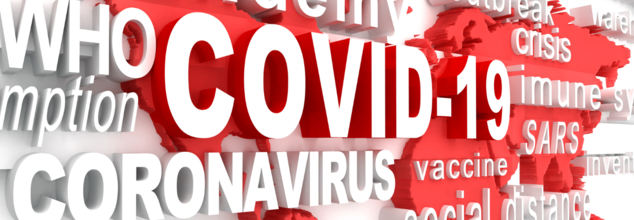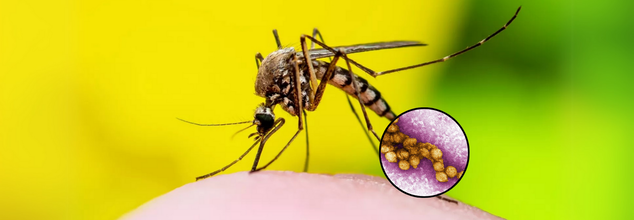- Health Conditions A-Z
- Health & Wellness
- Nutrition
- Fitness
- Health News
- Ayurveda
- Videos
- Medicine A-Z
- Parenting
- Web Stories
Rising Teen Mental Health Crisis in US Expected to Strain Economy

Teen Mental Health Crisis in U.S. (Credit-Canva)
Mental health is an ever-evolving field that needs to be handled with utmost care. While many people like to claim that mental healthcare is a waste of money and people can deal with stress and anxiety on their own, they have a lack of understanding on the matter. Many research and medical journals show how mental health has a huge effect on a person’s well-being, their social lives as well as their workspace. With how competitive the current market has become, you need to do well both mentally as well as physically to survive, no matter what industry you are in. And a recent study has raised some valid concerns regarding teen mental health and the future economy.
Teen mental health is said to be one of the most fragile and difficult to assess. While these kids are going through mental difficulties, they are also going through major transformative years of their lives. They are almost like half-baked human beings, who have a good grasp on things, yet cannot be treated like adults as they lack that maturity and understanding. But why has this become a big concern?
Teen Mental Health Impacts the U.S. Economy
According to a study published in PLOS Medicine when teenagers are stressed, anxious, or depressed, it affects their ability to get jobs and earn money later in life. This isn't just a personal problem, but it also affects how much money the country has overall. The study shows a clear connection between teen mental health and the economic well-being of the United States. This means that helping teens feel better mentally could also help the economy.
Researchers looked at data from over 3,300 people. They checked how these people were doing mentally when they were teenagers which is between the ages of or around 15 and 17 years old and then looked at their job situations ten years later. They found that if someone had serious anxiety or depression as a teen, they were less likely to have a job as a young adult. About 6% fewer of these young adults had jobs compared to those who didn't struggle with their mental health as teens. Also, those who were stressed as teenagers earned about $5,700 less per year when they were young adults. This means that teen mental health can affect someone's income for years to come.
Economic Benefits of Mental Health Support
The researchers wanted to see what would happen if we helped more teenagers with their mental health. They estimated that if just 10% of teenagers who are at risk of stress received help, it could save the U.S. government $52 billion over 10 years. This is because if these teens get help, they are more likely to get jobs and earn more money, which means they pay more taxes. This shows that spending money on teen mental health could actually save the country money in the long run. It's like an investment that pays off.
This study shows the fragile mental state of teens and why they should be taken more seriously. While there was a rise in people educating and taking mental health seriously, almost like the pendulum effect, the effect is going backwards with people believing that there has been a major misuse of mental health sensitivity by people. The lose use of terms like depression, OCD or anxiety has taken away from people who have this diagnosed issue. So, we as a society have to make an effort and bring these issues back to spotlight to make sure that the future of our countries does not suffer.
India Logs Rise In New Covid Cases: Here's All You Need To Know

Credits: Canva
The new variant of COVID-19 has hit parts of Asia, cases have surged in Hong Kong and Singapore, and Thailand too has reported new cases. Amid all this, in India too, health authorities are monitoring the cases closely. While the numbers remain low, as compared to previous wave of COVID-19, certain Indian cities have reported low, but significant surge in infections.
Two mild cases of Covid-19 have been reported in Gurgaon— a 62-year-old man and a 31-year-old woman, both recently returned from Mumbai. District health officials, including Chief Medical Officer Dr. Alka Singh, assured that there’s no reason for alarm as both are in home isolation and recovering well.
“This is now an endemic. Many with symptoms may test positive, but there’s no cause for panic,” Dr. Singh told reporters on Thursday.
Meanwhile, a 28-year-old security guard from Faridabad tested positive at Delhi’s Safdarjung Hospital during treatment for similar symptoms. None of the three individuals have recent foreign travel history or contact with known Covid-positive persons. Variant identification is pending further lab testing.
Maharashtra
In May, Mumbai has reported 95 new cases of COVID-19. This has put the state's total number to 106 since January. The data is corroborated by the Maharashtra Health Department.
Currently, at least 16 people are hospitalized, and most have been shifted from KEM Hospital to Seven Hills Hospital to curb the transmission. Authorities have also increased testing all patients with influenza-like illness (ILI) or with severe cute respiratory infection (SARI). The same patients are now being tested for COVID-19.
Pune too is on high alert, though there are no active cases at the moment. The municipal officials have reserved 50 beds at Naidu Hospital as a precautionary measure. Dr Nina Borade, who is the health chief at Pune Municipal Corporation said, "We had only one patient in May - an 87-year-old from Manjari - who has since fully recovered," as reported by TOI.
Dr Borade also noted that tests are not being conducted at any civic hospitals, however, the guidelines will be updated, as and when it is required.
Tamil Nadu
There has been a surge in cases in Tamil Nadu, with 12 new COVID-19 cases being reported in Puducherry. In Chennai too, doctors have reported a shift where fevers which were previously linked with influenza are now being linked to COVID-19.
There is also a rise of COVID-19 cases among viral cases, and many of the patients who may have been diagnosed with influenza A or B, are now being checked for COVID-19 cases.
TOI reported that the public health director Dr TS Selvavinayagam has told the public to not panic, however, he has urged them to remain cautious when in crowded spaces.
Karnataka
At this moment, Karnataka has confirmed 16 active cases of COVID-19. The data is corroborated by the state health minister Dinesh Gundu Rao.
ALSO READ: Covid Cases Surge In Singapore: What Do We Know About The New Variant On The Loose?
Gujarat
Seven cases as of now are detected in Ahmedabad. All these cases were detected on a single day, which made the city to witness an unusual spike in just one day, that has averaged just one cases per month over the past year.
The 7 patients are kept in home isolation, and authorities have sent their samples for genomic testing.
The state health officials on Thursday confirmed that among the 15 active cases in Gujarat, all of them are milder Omicron JN.1 variant.
Singapore And Hong Kong
As per the Ministry of Health, Singapore, the spike in cases is attributed to the new variant which may be on the loose - LF.7 and NB.1.8. These two are descendants of the JN.1 variant.
The cases have also spiked in Hong Kong. Thus Hong Kong's Centre for Health Protection (CHP) said that the rising COVID activity reached a 1-year high and have urged people to take precautions and receive an initial dose of COVID vaccine as soon as possible.
The Ministry of Health, Singapore, informed, ""LF.7 and NB.1.8 are the main Covid-19 variants circulating in Signapore." They are the descendants of the JN.1 variant that is used in COVID-19 vaccines.
What are The Symptoms Of This New Variant?
The symptoms which are associated with this current Covid wave are a bit different from what we have seen before. While cough and sore throat are there, the symptoms also include nausea, vomiting, brain fog, and conjunctivitis.
The symptoms however are mild. The experts have for now asked people to monitor their health and seek medical attention in case it is required.
RFK's MAHA Report Raises Concerns On American Healthcare

Credits: AP
A new, not binding legally, 69-page long document was released on Thursday by the US Department of Health and Human Services (HHS), titled Make America Healthy Again. The report revealed the health priorities of Secretary Robert F Kennedy Jr and has stirred debate across medical and agricultural communities. The report is expected to guide health policies during the remaining term of President Trump's term. The report has, as expected questioned vaccine safety, and brought the spotlight to the dangers of ultra processed foods.
Vaccine Under The Microscope
The report has called for heightened scrutiny of childhood vaccine schedule. It has also raised concerns about mandatory school vaccinations and the lack of placebo-based trials. While vaccines has been credited for a long time for eliminating deadly diseases like measles and polio, Kennedy has remained a vaccine skeptic. He has further suggested an investigation. As the US News also reports, this report has been criticized by Dr Amesh Adalja of Johns Hopkins for presenting a report without any scientific evidence that links vaccine to rising conditions like autism or obesity.
“It’s not as if they’re positing any kind of causal link,” Adalja said. “Kennedy is trying to devalue vaccines in the minds of Americans.”
The report also notes to limit access to COVID-19 shots.
Chemical Safety In Food
Farming chemicals, particularly glyphosate—a widely used herbicide—are another focal point. The report cites World Health Organization findings that label glyphosate a probable carcinogen, although the EPA disputes this. Critics, including the National Corn Growers Association, condemned the report for spreading fear without solid evidence.
Yet, MAHA supporters like Dave Murphy, as US News reported, argue the report doesn’t go far enough in addressing pesticide-related health issues, warning of potential political consequences if the concerns are overlooked.
Ultra-processed Foods and Poor Nutrition
The strongest health key point that the report highlights is the industry of ultra-processed foods. This accounts for about two-thirds of American children and teens' diets. These foods are rich in sugar, refined grains, and additives. They are linked with chronic conditions like obesity, diabetes, and many more. As the US News reports, Dr. Dariush Mozaffarian of Tufts University called the report a “pretty accurate depiction” of America’s nutrition crisis.
The report urges the National Institutes of Health to conduct wide-scale studies on these products. However, the call comes amid proposed budget cuts of $18 billion to NIH, raising concerns about how this research will be funded.
Physical Inactivity And Over Medication
Kennedy’s report also flags concerns about overprescription in children, including common medications like antibiotics and ADHD treatments. It argues that children are “overmedicated and undernourished,” and that even the use of everyday painkillers should be reconsidered.
Additionally, the report laments the declining levels of physical activity among American youth, framing it as a contributor to the rise in chronic disease.
Agriculture Secretary Brooke Rollins acknowledged the challenges of satisfying both health advocates and industry stakeholders. The report attempts to balance these perspectives, though some in the administration remain wary of adopting stricter regulations.
West Nile Virus Detected In UK Mosquitoes For The First Time- How You Can Protect Yourself?

For the first time, West Nile virus has been identified in mosquitoes in the United Kingdom, according to the UK Health Security Agency (UKHSA). The virus, spread mostly through mosquito bites, can lead to serious neurological disease in exceptional circumstances. Partial detection of the virus was made in Aedes vexans mosquitoes from Nottinghamshire wetlands during routine monitoring in July 2023. No human infections have been reported in the UK, but scientists attribute the outbreak of the virus to changing climate conditions favorable for the transmission of mosquito-borne diseases.
While the danger to the wider population is presently estimated as "very low," officials contend the emergence of the virus in the region marks a watershed in the way climate change and globalization are recasting the map of infectious disease in temperate nations such as Britain.
The finding was made in July 2023 when scientists from the UKHSA and the Animal and Plant Health Agency (APHA) found pieces of West Nile virus in Aedes vexans mosquitoes sampled in wetlands along the River Idle in Nottinghamshire. Although no cases of local human infection have so far been reported, the finding is medically and scientifically significant.
This is the initial West Nile Virus detection in mosquitoes in the UK to date, but it is not surprising as the virus is already well established in Europe," said Dr. Meera Chand, UKHSA Deputy Director for Travel Health and Infections.
The mosquitoes that are infected are indigenous to the UK, but the virus itself—historically resident in warmer climates—has now discovered a route northwards, probably aided by rising temperatures and changing ecosystems.
What is West Nile Virus?
West Nile virus is a flavivirus that is mainly transmitted through the bites of infected mosquitoes. Mosquitoes acquire the virus through feeding on infected birds and transmit it to humans and horses.
Although most WNV infections are asymptomatic or present with mild flu-like symptoms, around 20% of infected individuals develop fever, headaches, skin rash, or joint pain. The disease can have more serious consequences in around 1 in 150 cases, developing into life-threatening neurological syndromes like encephalitis (inflammation of the brain) or meningitis.
There is no specific treatment or human vaccine available for WNV at present. Patients usually recover completely, but some can develop long-term consequences following severe infection.
How Does Climate Change Affect Disease Migration?
The appearance of WNV in British mosquitoes is a trend within a larger movement, and that movement is driven by climate change. As temperatures increase and rain patterns shift, the UK and other temperate climates are becoming increasingly welcoming to mosquito species previously limited to warmer climates.
Experts note that similar phenomena have already occurred with diseases like tick-borne encephalitis, which was recently detected in parts of the UK where it had not been previously endemic.
UKHSA’s Role and Public Health Surveillance
While no evidence yet suggests that WNV is circulating widely in UK bird or mosquito populations, the UKHSA has taken steps to prepare. They’ve issued guidelines for healthcare professionals to test patients presenting with unexplained encephalitis for West Nile virus.
Surveillance systems such as those utilized by the UKHSA and APHA play a crucial role in sending out early warnings, aiding in guiding public health measures and safeguarding communities. These systems track the activity of mosquitoes, monitor bird migration patterns, and identify likely outbreaks, providing a first line of defense against new health risks.
How You Can Protect Yourself?
Wherever you are in the UK or visiting regions where mosquito-borne diseases are prevalent, personal protection is still the best defense. Here's how you can minimize your risk:
Dress wisely: Avoid short sleeves and shorts, particularly around wetland or forest environments.
Use repellents: Insect repellents with DEET or Picaridin have been shown to repel mosquitoes.
Secure your environment: Close windows and doors or fit screens to prevent mosquitoes from entering.
Eliminate breeding sites: Drain standing water from gardens, pots, and gutters where mosquitoes can lay eggs.
Be travel-aware: If traveling to areas that are known to have WNV—like regions in Europe, Africa, the Middle East, and the Americas—exercise extra care and monitor health advisories.
Check for ticks: When outside in grassy or wooded areas, perform a complete body scan for ticks that can also spread other infections.
The finding of West Nile virus in UK mosquitoes is not yet a public health crisis, but it is a wake-up call of absolute importance. With climate change disrupting ecosystems and wildlife habits, novel and previously extrinsic pathogens are gaining fertile ground in territories that were once thought safe.
© 2024 Bennett, Coleman & Company Limited

